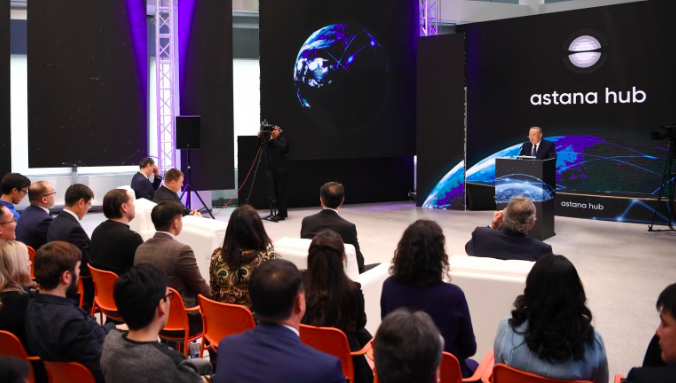ASTANA – Kazakh innovators in information technology (IT) are to be incentivised and supported, said Kazakh President Nursultan Nazarbayev Nov. 6 at the Astana Hub opening ceremony.
The President said the Astana Hub is to become Kazakhstan’s centre of innovation. To facilitate this, users of the hub’s technopark will enjoy a simplified visa regime, greater labour mobility, tax benefits and expert mentorship on their start-ups.
“We need to create a new generation of IT talents, and our main task is to help our smart and capable youth,” he said. “Support toward private initiatives, programming schools, Olympiads and updated university curriculums is to be provided.”
Nazarbayev further singled out the importance of financial support from the government and businesses for start-up implementation.
One of Astana Hub’s main foundations is the Law on Venture Financing, which entered into force July 21 and eased visa procedures and employment regimes for foreign technopark participants. The first Kazakh business angels club QazAngels will soon begin its work, in which angel investors will contribute their time, money and connections to help entrepreneurs with their ventures.
Digitisation was contextualised within the country’s broader industrialisation efforts.
“The Internet of things, artificial intelligence, three-dimensional printing technology and blockchain infiltrate all spheres of life,” the President noted. “Digitisation has become a key factor in states’ development and competitiveness. The world’s leading countries and their associations, such as the G20 and the European Union, have all adopted strategic documents on digitisation.”
On his first official visit to Kazakhstan, Estonian Prime Minister Jüri Ratas was present at the ceremony. Nazarbayev, stressing Estonia’s experience in digital technologies, thanked Ratas for participating in Astana Hub’s launch. He concluded by urging all to actively participate in the development of innovative technology.
The Astana Hub international technopark hopes to attract $67 billion in investments within the next five years. It has signed a memorandum with American seed accelerator Techstars and established connections with other innovation ecosystems in Belarus, Kyrgyzstan, Russia, Ukraine and Uzbekistan.

